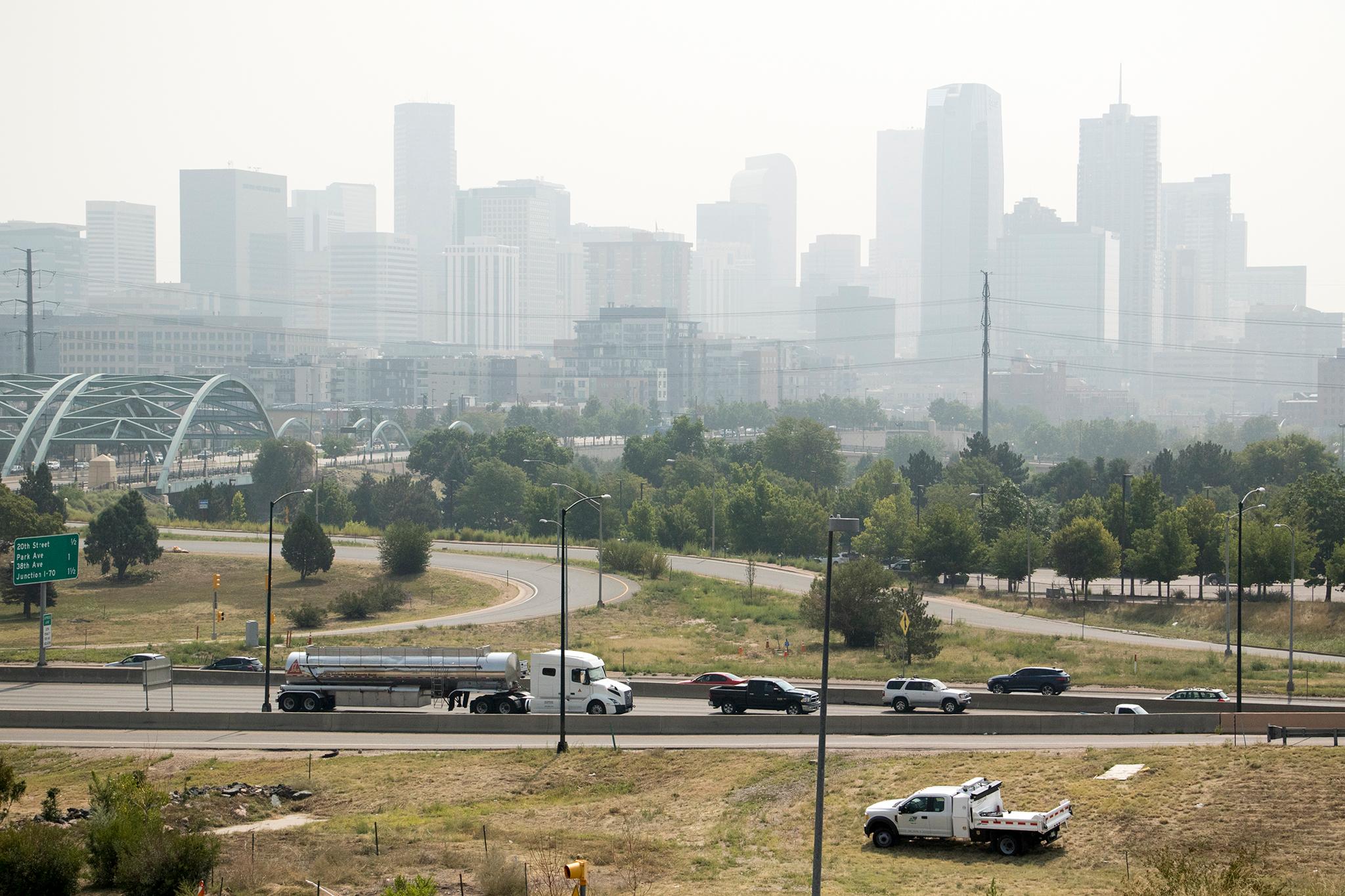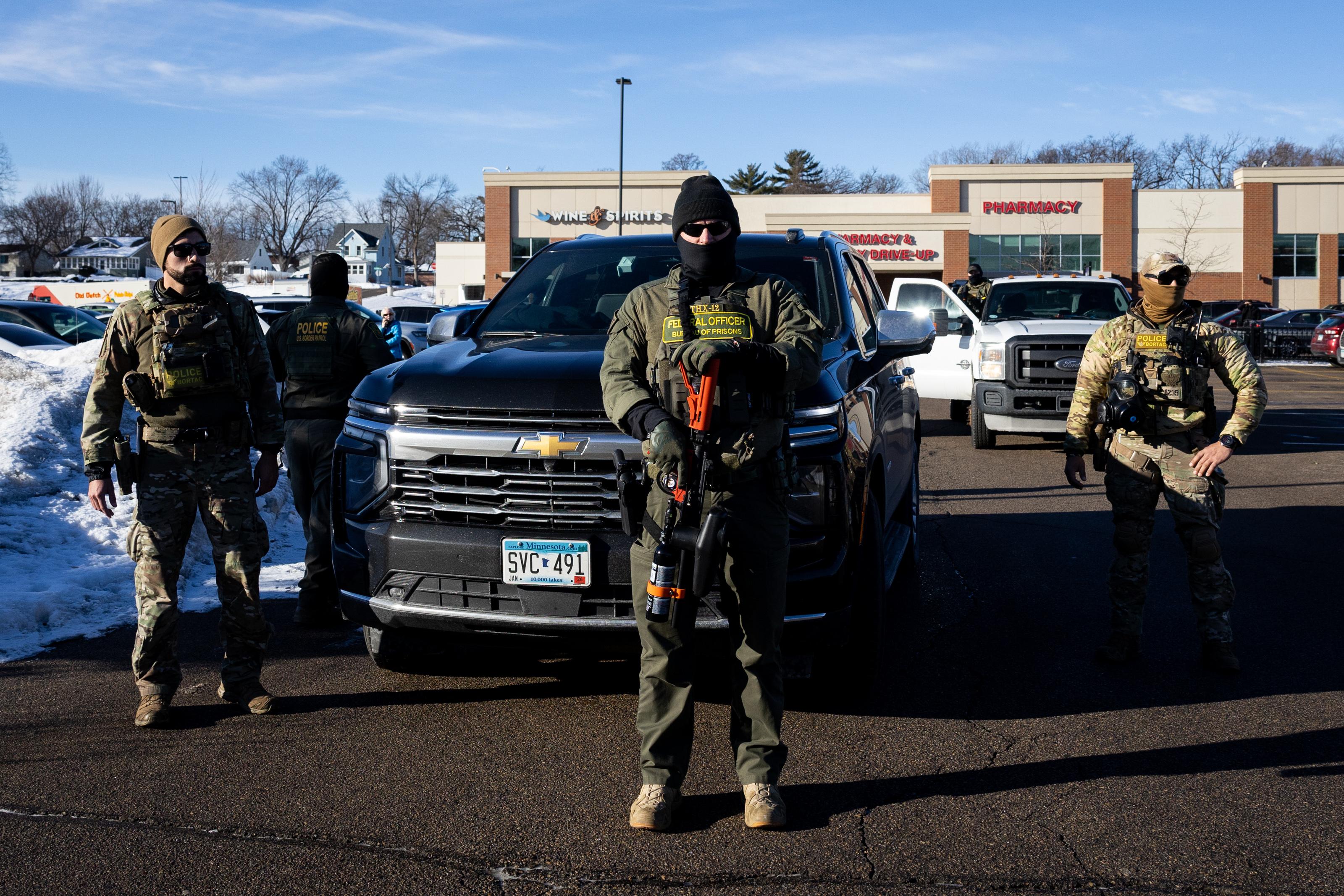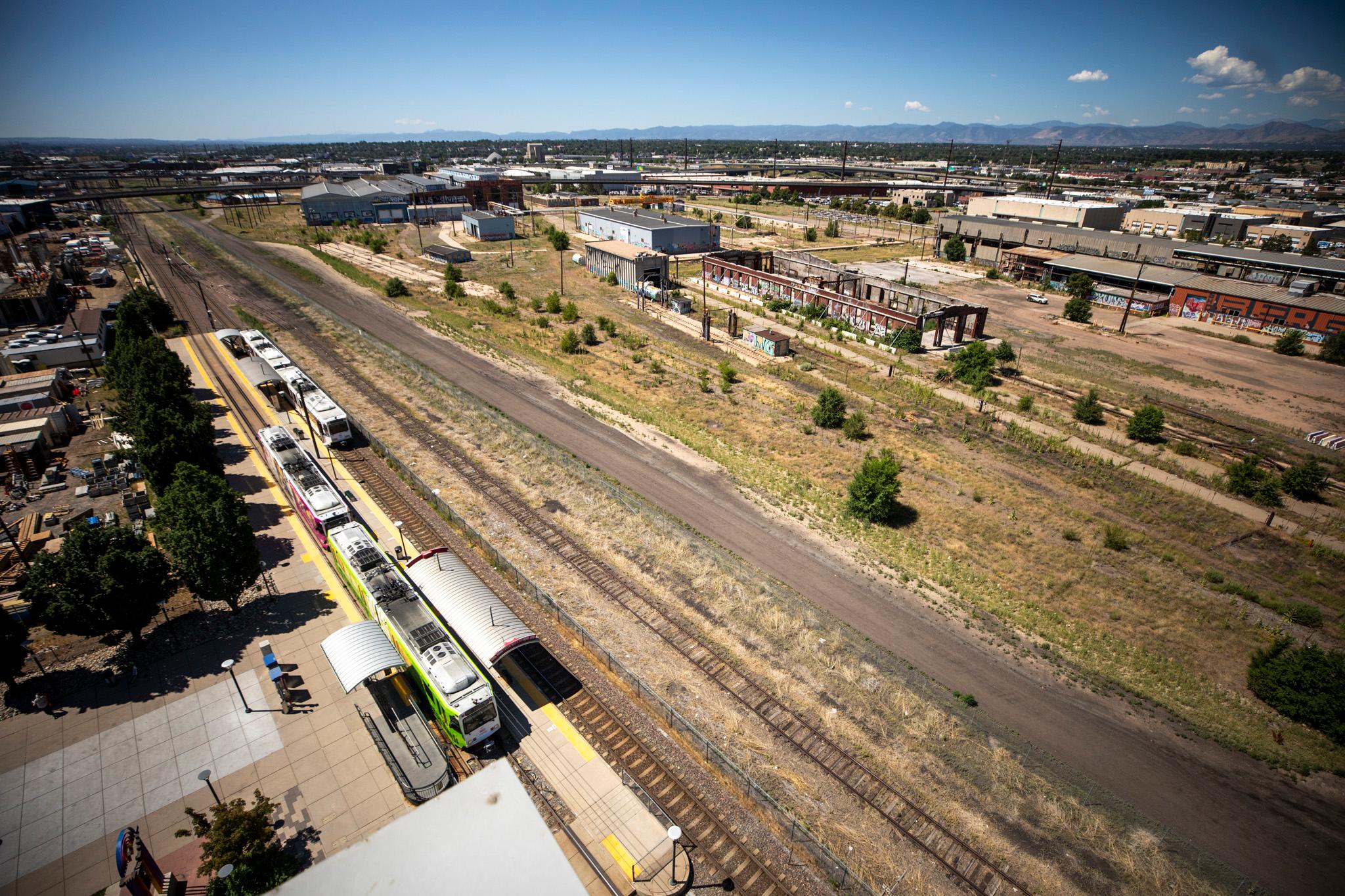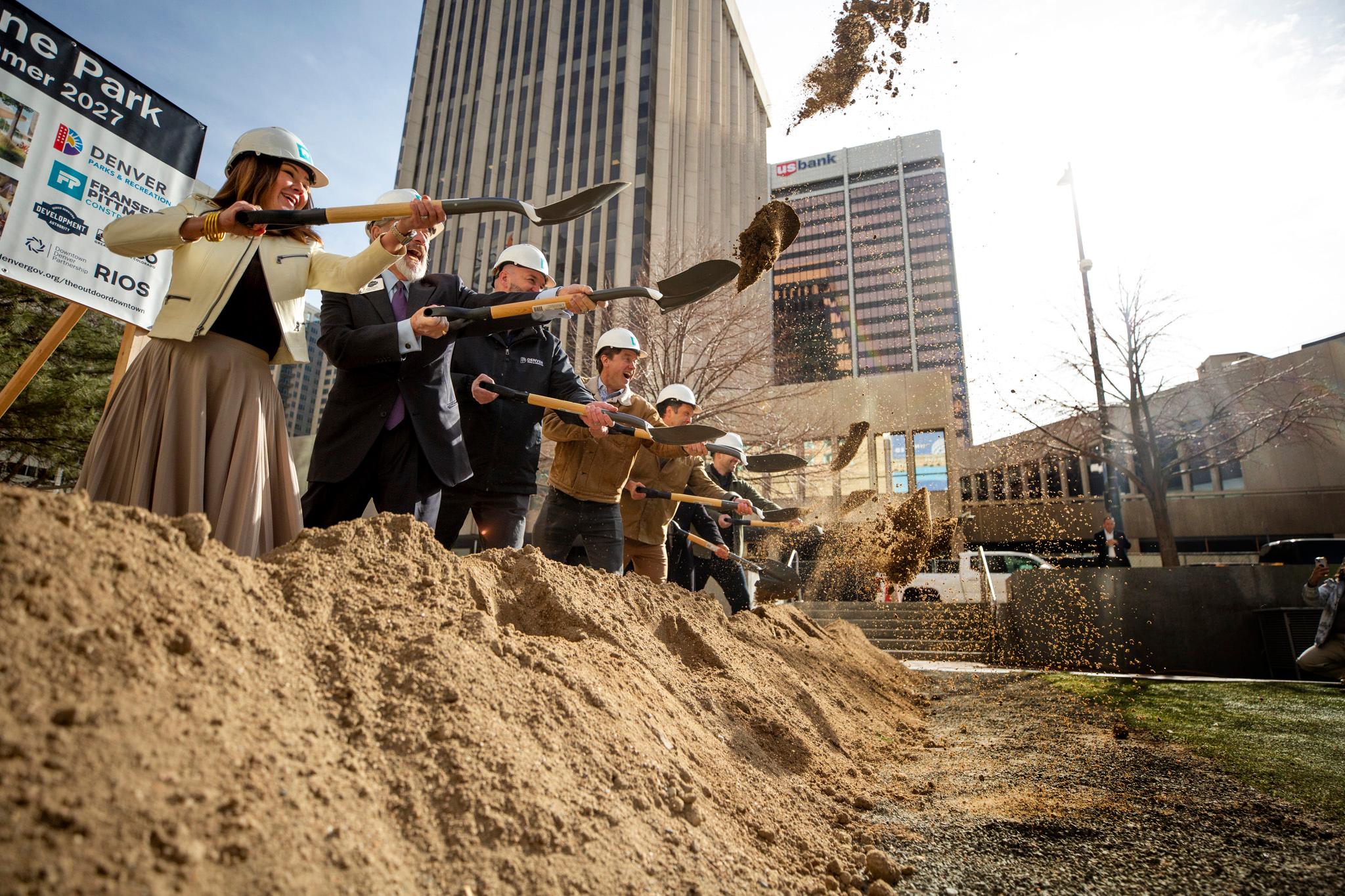Over the summer, we asked 100 Denverites across the city what issues they hoped political candidates and proposed policies would address during the 2022 November elections.
Environmental issues were high on the agenda, especially as Denver experienced a high number of 100-degree days. To be specific, Denverites were concerned with climate change, environmental justice and the creation of environmentally-friendly infrastructure and transportation methods.
If the environment is high on your list, grab yourself a glass of water and read up on how this issue will pop up on your ballot. And reminder, ballots go out Oct. 17 and the election will be on Nov. 8.
City and County Ballot Questions
These are the hyper-local ballot measures concerning the environment brought to you by Denverites. "Referred Questions" come from the City Council. "Initiated Ordinances" are from citizens who collected registered voter signatures and "Ballot Issues" are from local districts.
Referred Question 2J: Should the city keep and continue to collect tax revenue generated from the .25% sales-and-use Climate Action tax, which funds climate action initiatives?
Initiated Ordinance 306 (Waste No More): Should the city require residential buildings, non-residential buildings and food waste producers to provide recycling and/or composting options? Should the city also require construction and demolition crews recycle all salvaged materials and submit recycling/reuse plans?
Initiated Ordinance 307 (Denver Deserves Sidewalks): Should the city take over responsibilities for installing and repairing sidewalks from homeowners and also create a 'Sidewalk Master Plan'? Both items would be paid for through a new property owner fee.
Ballot Issue 7A: Should the Valley Sanitation District, a quasi-municipal corporation that provides wastewater collection services to a small section of Denver near W. Hampden Avenue, be allowed to keep and continue to collect taxes? Overall, the District encompasses 1.3 square miles of land located within the cities of Littleton, Englewood, Denver and Sheridan. If voters approve this debrucing issue, general property taxes will produce the largest amount of District revenues between 2022 and 2031 with a total of $2,803,454 or 43.2 % of total revenue.
(Note: This issue will only appear on the ballots of those living in this district.)
U.S. Senators and House Representatives for Congress
U.S. senators and representatives speak for Coloradans at the federal level. They propose and vote on federal policies and many of them have the environment on their minds.
Colorado has two U.S. Senators, Michael Bennet and former Denver mayor John Hickenlooper. Bennet is up for reelection this year.
Bennet, a Democrat, says he wants to focus on "common-sense actions" to reduce pollution and increase clean energy. Bennet had a hand in crafting the 2021 Bipartisan Infrastructure Law and the Build Back Better Act, which would spend up to $1.75 trillion on social spending and climate change mitigation. He's also focused on helping Coloradan agriculture thrive.
Bennet's Republican challenger Joe O'Dea also has climate change on his agenda. He wants to"restore American energy dominance" by expanding energy production for all types of energy including wind, solar, nuclear, natural gas and oil. He said one way to increase production is by modernizing permitting and inspiring innovation.
There are currently seven congressional districts, but next year there will be eight.
Congressional district 1 encompasses the city and county of Denver and is currently represented by Rep. Diana DeGette.
DeGette is focused on creating a new clean-energy standard by eliminating "all of their net carbon emissions as early as 2037." She's also focused on preventing methane waste and cleaning up low-income and minority areas affected by environmental racism.
DeGette's opponent Jennifer Qualteri doesn't list any climate concerns under her platform, but in a blog post she mentions the need for electricity and that she supports carbon capture.
Governor
Governors have executive powers to control the state, in which they can enact policies geared toward the environment and climate change.
Incumbent Gov. Jared Polis says he is focused on protecting the state from wildfires by increasing funding for firefighters and streamlining first responder responses. Polis is also looking to lower costs for renewable energy and electrify the state's transportation and utility sector.
Polis' opponent Heidi Ganahl has a 10-year, $10 billion plan to invest in Colorado's infrastructure. The plan includes road fixtures and installation of more electric vehicle charging stations.
Here's more about incumbent Jared Polis (Dem) and challenger Heidi Ganahl (GOP).
Attorney General
The Attorney General's office ensures folks follow regulations, such as environmental laws. Current AG Phil Weiser has discussed preserving natural resources in Colorado through the Department of Law.
Here's more about who's running.
State Treasurer
As the state's accountant, it's the treasurer's job to oversee tax money, which could help fund environmental initiatives. Current Treasurer Dave Young's website notes that during his tenure he identified funding for infrastructure improvements.
Young's Republican opponent, Lang Sias, doesn't mention the environment on his campaign website.
Here's more about who's running.
State Senators and Representatives in the state legislature
State senators and representatives are similar to their U.S. Congress counterparts except they focus on Colorado's legislature and budget. Both state senators and reps have the ability to propose and vote on policies related to the environment.
There are 35 state senators and 17 of those seats are up for election, including District 32, which covers south and southwest Denver, and District 34, which covers west and northwest Denver.
There are 65 members of the house and all of the seats are up for election.
This year, state lawmakers have passed legislation to fund free RTD rides, crack down on air regulators and fund incentives for clean transportation, like electric school buses and zero-emissions trucks for private companies.
?️ For more information on the November ballot, check out the complete Denverite and Colorado Public Radio ballot guides.












